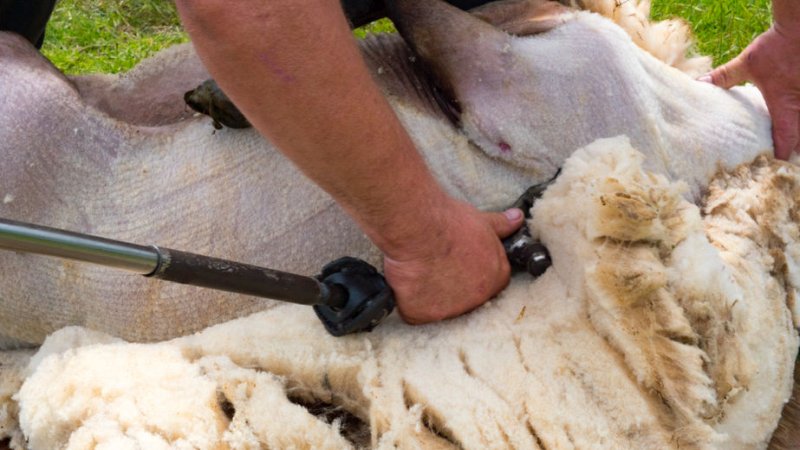
Sheep farmers have highlighted their disappointment to see the impact of the Covid-19 crisis on wool prices after British Wool confirmed a sharp fall in values.
February to May is normally the busiest selling period of the year, but the global market for cross bred wool has been shut since February and remains closed.
The wool co-operative said that the world was facing the 'most severe recession in its history' due to the coronavirus pandemic.
Because of the impact of the crisis, the average price paid to sheep producers for the 2019/20 clip will be 32p/kg - down from 60p/kg in 2018, it confirmed.
"By way of historical comparison this year’s payment is in line with those paid in the late 2000s at the time of the financial crisis," British Wool said in a statement.
"If we sell the 2019/20 unsold stock at a higher price than our assumed value we will make a further payment later this year in relation to the 2019/20 clip, depending on the economic outlook at the time."
The co-op admitted that the global cross bred wool market would be 'extremely challenging for the foreseeable future'.
"We will not be making an advance against 2020/21 clip wool and instead will make full payment for 2020/21 clips from May 2021 onwards once we have sold the clip and have valuation certainty.," it added.
"Should the market happen to improve somewhat in the next 12 months from the trough it is in at the moment, the price returned to you would see the benefit of this improvement."
Sheep producers have reacted to the news with concern. The National Sheep Association (NSA) said farmers' cash flows would be affected, and many faced with a bill from their shearing contractors but with no income to offset that.
"Although there are plenty of sheep farmers who do get real value from their wool most will at least expect it to cover shearing and wool handling costs," NSA chief executive, Phil Stocker said.
"A fall of 50% of total value would, for most, mean total income not clearing costs."
The group added that it was 'disappointed' that British Wool had been unable to access the government's Covid-19 support schemes, which would have had a 'big bearing' on the co-op's decisions.
